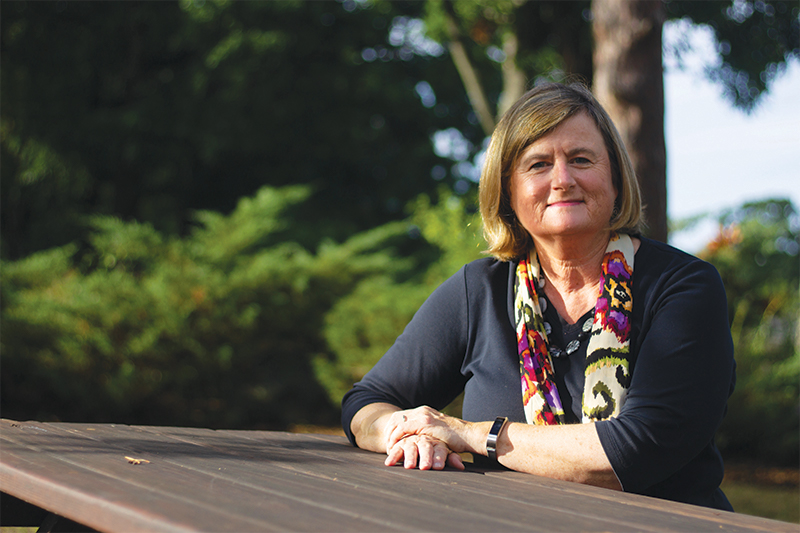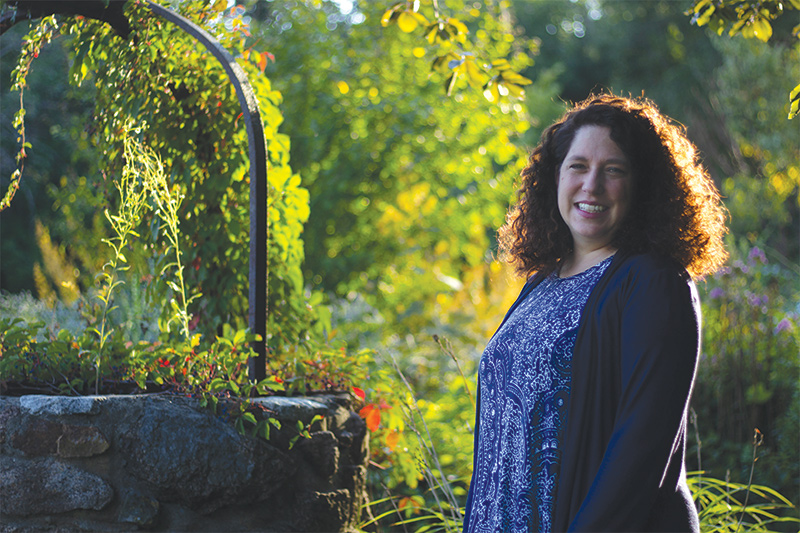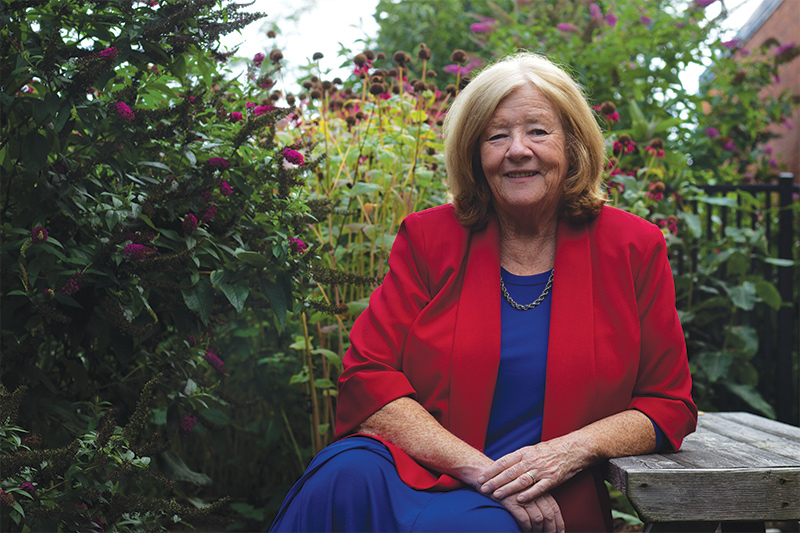Robyn Frost, executive director of the Massachusetts Coalition for the Homeless in Lynn, remembers the great conversation she had just before the pandemic with people from The Women’s Fund of Essex County, an all-volunteer organization that provides funding to nonprofit programs to improve the lives of women and girls in Essex County.
The Massachusetts Coalition for the Homeless was seeking a grant to expand its STEAM to Build DREAMS initiative, where local students design and build beds for children in poverty.
“We gave them this beautiful presentation,” Frost says of the Coalition’s meeting with The Women’s Fund. “Then COVID hit.”
Suddenly, the bed-building program was shoved to the back burner as emergency needs bubbled to the surface. Not only were its clients in crisis, the Massachusetts Coalition for the Homeless wondered how it would continue to function at all.
“Most of us had funding sources that literally dried up, but the need had escalated,” Frost says of her own organization and other local nonprofits.
What happened next was a lifesaver, literally—instead of scrapping its planned grants for programs that had ground to a halt because of the pandemic, The Women’s Fund quickly shifted its giving strategy to allow for COVID-19 relief.
In the grant-giving and nonprofit world, grants are awarded for specific programs. When agencies receive grants, they’re not allowed to use that money for anything else.
But during the pandemic, many agencies shut down, closing their facilities and in-person programs, and leaving funding that was earmarked for those programs essentially useless.

“We recognized that we had to immediately change direction and use a completely different playbook,” says Lisa W. Parker, grants allocation chair for The Women’s Fund of Essex County. “Because it really was sort of silly for us to try to fund programs when it was clear that our grantees weren’t thinking programs, they were thinking survival.”
Instead of giving its usual three-year, program-specific grants, The Women’s Fund awarded one-year unrestricted grants that would allow agencies to use the money in any way they needed to during the pandemic, giving away $100,000 to 12 agencies.
It was a move “that doesn’t happen very often in the funding world,” Frost says, calling the grant money from The Women’s Fund “a shot in the arm that allowed us to continue to do very impactful work.”
The way that the Massachusetts Coalition for the Homeless has used the grant funding—for health partnerships and food and grocery relief—aligns exactly with what The Women’s Fund aimed for in funding its 2020 grantees.
“We chose to focus on the most immediate, basic human needs like food security, personal safety, housing, and mental health and addiction services,” Parker says. “Those were the ones that seemed to be the most pressing given the seriousness of COVID-19 and the services that were being provided by the bulk of our grantees.”
In addition, its funding continued to focus on the needs of women and girls.

“Women make up 52 percent of essential workers, [and] 26 percent of single mothers are head of household, yet women receive only a fraction of each charitable dollar,” says Elaine Quinn, president of The Women’s Fund of Essex County. “The need is not only real but increasing as COVID-19 continues to wreak havoc on not only the financial but also both the physical and mental health of people in our communities.”
For Gloucester-based Wellspring House Inc., one of the grant recipients, that has meant an increased focus on homelessness prevention. Executive director Melissa Diamond says calls to its homelessness prevention line have skyrocketed since March.
“The part of the work that has really increased is the number of inquiries we’re getting from people who are in a crisis situation,” she says.
The unrestricted grant funds have also helped agencies that perhaps couldn’t have predicted what their clients would need during the pandemic. For instance, Pathways for Children, Inc., in Gloucester gave away countless packages of diapers, which were especially needed when grocery store shelves were empty of paper and hygiene products.

“It gave us the flexibility to put that money where we needed it and at the time…we had no clue what we were going to need,” says Kerry Fitzgerald, grants officer for Pathways for Children.
For them, it also meant providing thousands of dollars’ worth of grocery store gift cards to its clients, giving direct and instant relief.
“If we can help them with food then they can use whatever money they’re not spending on food to pay their rent or to get the other things that they need,” Fitzgerald says.
The unrestricted grants speak not only to The Women’s Fund’s recognition of need, but also to its unique relationships with the agencies that it works with. They Women’s Fund are “exceptional stewards of our donor’s money,” and “undertake a very comprehensive vetting process before we allocate any money,” says Quinn. It funds only programs with proven track records.
That stringent and careful vetting process allowed The Women’s Fund to show “trust and understanding” to its grantees during this unprecedented emergency, says Diamond.
The vetting process also has allowed The Women’s Fund to develop real relationships with the organizations it works with. “Not only are they a funder, but they get involved,” says Fitzgerald. “They become your partner—they make a commitment.”

